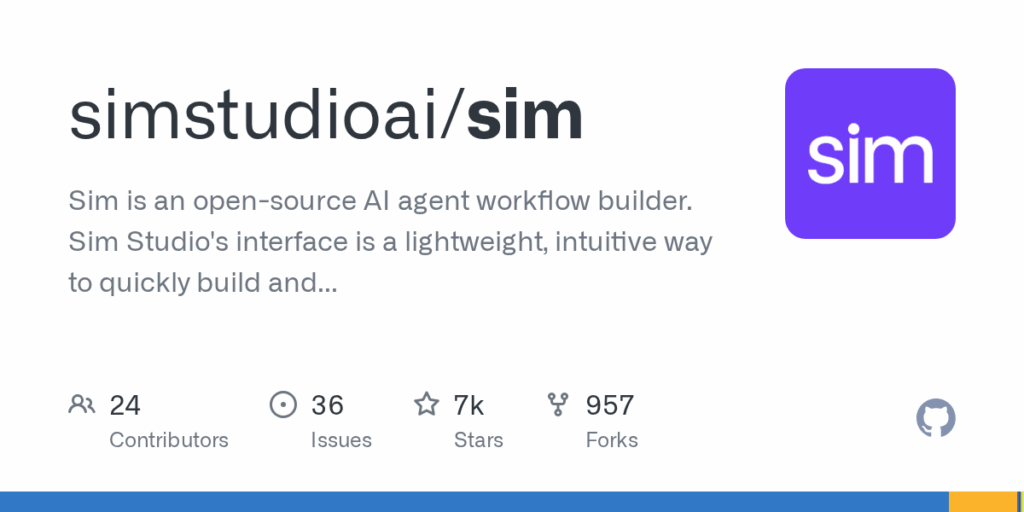sim
Basic Information
Sim is a lightweight, user-friendly platform and open-source project for building, running, and self-hosting AI agent workflows. The repository provides a full-stack application composed of a Next.js frontend, a realtime socket server, and tooling to create visual flows and agent pipelines. It supports both a cloud-hosted offering and multiple self-hosting methods including an NPM launcher, Docker Compose setups, dev containers, and manual Bun-based development. The system is designed for teams and developers who want to prototype, run local models, or deploy production-ready agent workflows with support for vector embeddings, knowledge bases, and semantic search backed by PostgreSQL with the pgvector extension. The README documents setup, requirements, and recommended configurations for local GPUs and CPU-only environments.








